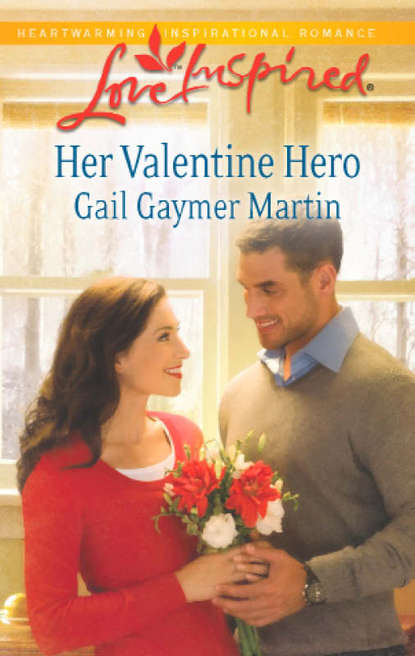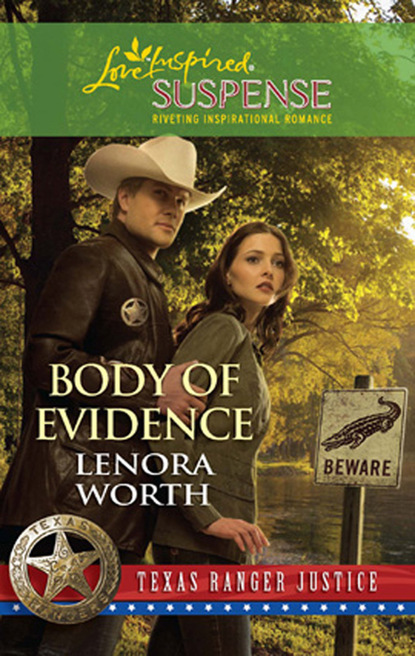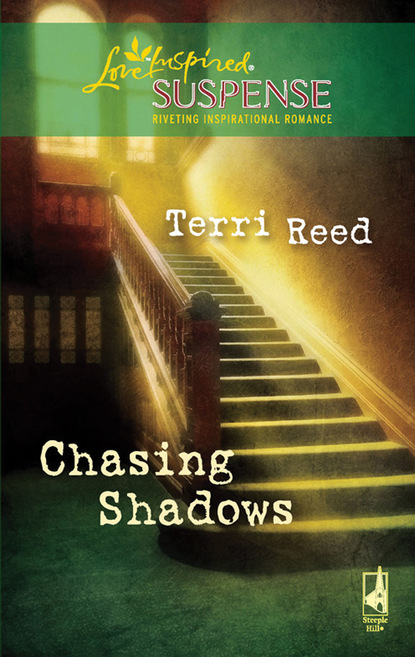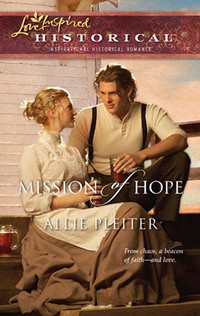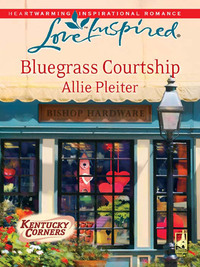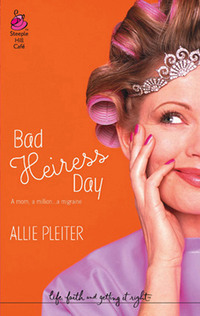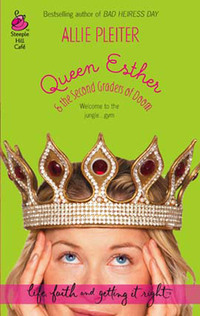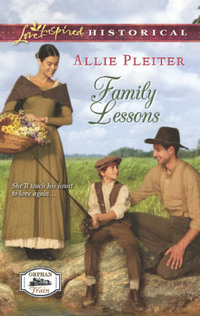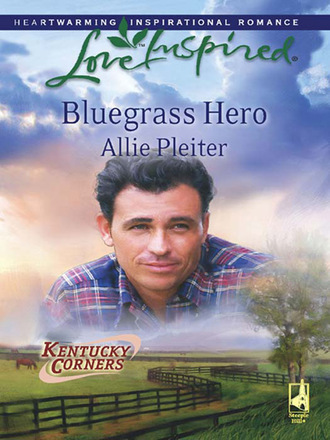
Полная версия
Bluegrass Hero
She picked the soap back up and inhaled again. It was extraordinarily pleasant, she had to admit. But it was a bar of soap.
She took the corner she’d just cut off and rubbed it against the inside of her wrist. No tingle, no itch, no sudden burning desire to find male company. Well, she was already in male company, and he wasn’t a hideous-looking man, but…
Emily shook her head, rewrapped the soap and returned it to the plastic bag. “I haven’t got an explanation for you.”
“I saw your face when you smelled it.” Emily blushed and started to defend herself, but Sorrent pointed at her. “It’s just soap, for crying out loud. You and I both know soap can’t do that. Make sure no bar of that stuff finds its way back onto my farm. Got it?” Without another word, he turned around and walked out of the shop, the posse of young men scattering to avoid him.
Emily huffed at the door as it swung shut. Not hideous-looking, but a far cry from good-natured. He can’t tell me what to do. He’s getting all angry over nothing, besides. She bent over to toss the cut bar of soap into the trash bin. The way he’s acting, you’d think I’d suddenly become a popular shopping destination for tough-guy farmhands. Honestly.
When she looked up again, however, Sorrent’s guys had scrambled back to her window. After a split-second hesitation, the entire group lurched through her door, nearly knocking each other over to get to her counter first. Emily tried to tell herself there was no cause for alarm, but they were an alarming-looking bunch, all mobbed together like that. And Ethan was nowhere in sight. One was as tall as Gil and twice as heavy, looking as if he could be a bodyguard or a professional wrestler. Another peered at her with squinted eyes, and she could see he was missing a tooth when he smiled—it wasn’t exactly the kind of smile anyone would describe as “warm and friendly,” either. Another had thick dark hair and spoke with a silky, accented voice. The group contained every version of “tough guy” that Emily could imagine. And this was definitely one of those situations where the whole was scarier than the sum of its parts.
“I’ll give you ten dollars for that soap,” offered the one with the missing tooth as he pointed to the first wet bar in its plastic bag still on the counter.
“Forget him, I’ll give you twenty. You got more?”
“If you can hold it till Wednesday, I’ll give you thirty!” a third one cried.
Emily placed her hands over the bar and slid it protectively closer to her side of the counter. The men had been in such a hurry to get to her that the whole lot of them had walked clean past the dozen bars of Pirate Soap on the table behind them.
What in the world is going on here?
Slowly, with all the authority she could muster, she raised her eyes to meet the crowd. “Did you know your boss just told me not to sell you any of this soap?”
A chorus of disappointed moans met her declaration.
“Come on now, ma’am. You don’t have to do what he says. He’s not your boss.”
“I could have fifty dollars here by tomorrow morning, lady,” offered a small, dark-haired teenager as he pushed his way from the back of the crowd. He had black, beady eyes and a rodent-like grin. “Hey, where else you gonna get fifty dollars for a bar of soap?”
Emily stared at her sudden customers and told herself to remain calm. When she’d asked God to send her a way to make her next loan payment, this wasn’t what she’d had in mind. She was thinking more along the lines of a busload of wealthy tourists. Now she found herself holding soap she hadn’t ordered with scary-looking men fighting to give her more money than she’d ever made on even her best ladies’ soaps.
Maybe she should get another cup of coffee under her belt before she prayed over her to-do list in the mornings.
“Now gentlemen, let’s just slow down a minute and—”
“You all better get your sorry backsides out of this shop this instant!” yelled a booming voice from the door. The group turned to find a furious Gil Sorrent stalking toward them. He didn’t have to finish the threat. They were scrambling out of the store as fast as they had entered it. The beady-eyed one turned to mouth Fifty silently to her, throwing her a wink, besides.
The mob sent the soap-dish table teetering in their wake, and Sorrent was barely able to get his hand under a dish as it toppled off the table. He set it back, muttered something under his breath, gave Emily a quick glare and left the store without so much as a goodbye.
Chapter Three
Soap.
Gil slammed his truck into third gear. Soap is supposed to be home and laundry and Sunday-morning-go-to-churchness. Who knows what they put in it these days? Fragrance. That place smelled like a funeral parlor there was so much “fragrance” in it. Made it hard to breathe, much less think clearly enough to survive his last two visits to West of Paris. He’d sent his guys straight home in the van with Ethan and finished up the rest of his errands in a sour mood after his last visit to the shop.
Shop. That’s the trouble right there, Gil thought. Give me a store every time. A man can trust a store. A store’s where you go in, get what you need, pick up a few tidbits and go home with a fair deal. A shop, well, a shop’s where ladies meander and everything costs too much and you come home with far more than you bargained for. After all, no one goes “storing.”
And everyone knows what happens when women go “shopping.”
Gil had never met a man who “shopped.” And he never wanted to.
He hadn’t asked for this. He’d never have even set foot in the shop if he weren’t so pressed for time. Why hadn’t he just gone online and sent something to his niece last week? Now he owned broken soap dishes he’d never use, just because Ethan had knocked him into them. Not that he’d ever be seen with the likes of those kind of soap dishes in his bathroom. He hadn’t picked up the bars of Lord Edmund’s Pirate Voodoo Soap or whatever it was called—she’d put them in his bag. Without his permission. Gil was a man who cleaned up his own messes, but they were usually his messes, not catastrophes someone else had created.
“Mud.” Gil looked his basset hound straight in one bloodshot eye. “Never shop.”
Mud swung his enormous head away from Gil and looked out the passenger-side window, as if he found the very word repulsive.
“Good dog.”
Gil was leaning over to scratch Mud’s ears when his cell phone went off.
“What!” he barked into the phone, still angry.
“Hey, you’re the one who told me to call you. Somebody just kick you or something?” Mac’s voice was full of humor rather than anger. “So how was your niece’s thing last night? Did you smile nicely and play well with the others?”
Gil really wasn’t in the mood for Mac’s sarcasm. “Enough, Mac.”
“Okay, fine. Congratulate me.”
Gil blew out a breath. “Congratulations, Mr. MacCarthy. Why?”
“We got on the agenda.”
“Well, why didn’t you say that in the first place? That is great news, Mac.” Gil’s mood changed instantly with the welcome news. Middleburg had been taking the term rustic to new heights, and if he and Mac didn’t steer their vision toward the future, there wouldn’t be much left to visit, no matter how charming. People in Middleburg were fond of the status quo. Very fond. And Emily Montague and her ilk were all too happy to keep it that way. A slot on the next town council agenda was the first step in what was sure to be a long uphill battle to shove Middleburg into the present (much less the future), but Gil was determined to do what he could. “What else is on the docket that night? Anything that could knock us off?”
Gil heard Mac shuffle a few papers. “Civic stuff, some planning for the Character Day speeches at the high school, a couple of scholarship awards and, uh, your favorite folks, the preservation task force. Something about banning ATM machines on Ballad Road. Gotta love that.”
“We’re done for, Mud,” Gil grumbled to the dog as he finished up his call and stuffed his cell phone back in his shirt pocket. “And it ain’t even noon yet.”
Sandy Burnside pushed through the Middleburg Community Church lobby to find Emily after Sunday service. “Can you do lunch?” she asked, folding the church bulletin and slipping it into her enormous silver handbag. “We’ve got some stuff to go over for town council. Nice job on the ATM thing, by the way.”
“Sure, I’ll do lunch, but don’t give me all the credit on the ATM. It wasn’t that hard to write a letter,” Emily countered, waving away the woman’s enthusiasm. “How tough can it be to talk the rest of our town council into loving Ballad Road the way it is?”
Ballad Road was part of what made Middleburg so wonderful. It was the kind of main street everyone wished they grew up on—a stretch of unique shops and friendly places to eat where everybody knew everyone else. There wasn’t a chain store in sight, everyone decorated to the nines for Christmas and they closed the street down for a festival on the Fourth of July. You didn’t run errands on Ballad Road, you visited friends while you just happened to get things done. Sure, it wasn’t that big—sometimes Emily had to send customers into Lexington for unusual requests—and it had its share of quirks, but Emily loved every stretch of that eight-block sidewalk. Like the other shopkeepers along Ballad Road, she felt like more of a curator than a merchant. They were protectors of a small-town atmosphere that was almost nonexistent in other parts of the world.
Sandy, even though her clothing shops weren’t on Ballad Road, was just as vigilant a soldier in the fight to keep Middleburg’s rural charms. Which made her a leader in the fight against Mayor Howard Epson and his ATM machines. “Don’t you go and sell yourself short. Howard was near drooling over that dumb idea to put cash machines all over downtown. Must’ve gotten the idea from some ad in the back of one of his fi-nancial—” she rolled her eyes and emphasized the first syllable in financial “—magazines. I wouldn’t be surprised if he’s already made a list of what he’s gonna do with his profits. And I’m pretty sure ‘tithe it to the Good Lord’ ain’t on the list.”
Emily pulled her jacket from the church’s coat rack. “The trouble is you’ve asked for things before. This was just arguing against something, even if it was Howard’s plan. That’s easier—it doesn’t cost anything.” She looked at Sandy, who was sharp as a tack and probably already knew why they’d met with a bit of success. “Anyone could have figured it out.”
Sandy grinned as she reached over and plucked her brown leather coat off a hanger on the other side of the rack. “Not anyone. You. I could learn a thing or two from you.”
Funny, I’d always thought it the other way around. Emily looked at her friend as they began the walk into town. Sandy owned three of the largest apparel stores in the county. Though small in stature, Sandy was a bubbly, larger-than-life character. A blizzard of blond hair, bright-pink fingernails and four-inch heels on even her most casual days, you could see Sandy coming a mile off. Sandy had considerable clout in both Middleburg and its city neighbor Lexington, but she never threw her weight around. No, Sandy sort of skipped through life, scattering her influence here and there as if she were a flower girl and life was her own personal, neverending church aisle. If you could dream up a one-woman cheering section, it’d be Sandy.
“You’ll be right beside me when we propose that ordinance,” Emily reminded her. “I need you and your sparkling personality to keep Howard and his buddies from just looking at the world with dollar signs for eyeballs.”
“Nonsense.” Sandy narrowed one eye and leaned in close. “They may be prickly, but they smell a skunk quick as everyone else. We don’t need to look like a shopping mall to draw folks—Middleburg’s best show will always be on four legs.”
Emily laughed at Sandy’s wild imagery. “Maybe, but you’ve always liked the show that walks on two legs and carries a full shopping bag.”
“Well, that kind of filly’s nice, too. I like our town just the way it is. I say we’ve always been able to keep ’em pretty and happy and comin’ back for more.”
And that, Emily thought, was a perfect description of Sandy: Pretty and happy and comin’ back for more.
“Speakin’ of fillies,” Sandy said as they settled into a table at a nearby coffee shop, “I solved your little mystery.” Sandy had social connections unachievable by mere mortals. She knew everyone, everyone knew her and Emily had yet to meet anyone who said they didn’t like Sandy. Lots of people thought her a bit…much, but they still liked her. If Emily needed anyone to do anything, chances were Sandy knew someone for the job. She was the heartbeat of Middleburg, and quite possibly of the state. “The bit about Ethan Travers,” she offered, “and his sudden popularity with the ladies?”
“You did?”
“You’re talking about Gil Sorrent’s foreman, right? Skinny, bushy hair, kinda wiry lookin’?”
“Yes, that’s him.”
“Well, women were going after him at the interfaith church social Friday night. If you’d been there, you would have been able to see it for yourself.”
Emily, a fan of church but not of church socials, chose to ignore “matchmaker” Sandy’s gentle rebuke and keep to the subject at hand. “I know that part, but I need to know why. Ethan doesn’t strike me as a real ladies’ man.”
Sandy started laughing. “No, ma’am, he ain’t. It took a little doin’, but I have figured out why he was suddenly the center of attention. And I guarantee it don’t have a thing to do with soap.” Sandy rested her elbow on the table and leaned in. “Doc Walsh’s wife told me Thursday afternoon at the Women’s Guild meeting that she heard Ethan Travers has a birthmark shaped like the state of Texas on the back of his neck.”
Odd as it was, Emily didn’t see how it explained things.
“And Barbie Jean Blabbermouth was sitting beside me when she said it.”
Now that explained a lot. Barbara Jean Millhouse, aka Barbie Jean Blabbermouth, was so fond of gossip she was practically her own communications monopoly. Anything uttered in Barbara Jean’s vicinity was instantly public and often widely exaggerated. Given Barbara Jean’s talents, Emily was surprised she hadn’t heard that Ethan had a birthmark in the shape of Elvis and that he could make it gyrate on command.
Barbara Jean also had four daughters. Four single daughters, because none of them could keep their mouths shut any better than their mother and far too many Middleburg men had learned that the hard way.
“What did Ethan think? That he’d stumbled onto some kind of love potion? That man’s smarter than that. He knows there’s no such thing as love soap.”
“Actually,” Emily corrected, “there is. There’s also joy, and peace, and patience, kindness and the rest of the fruits of the spirit—you know, from the passage in Galatians? I just bought a line of soaps from a company called Edmundsons because I thought it was such a clever idea. Edmundsons is also the company that makes Lord Edmund’s Pirate Soap, which is what Ethan thinks made him a ladies’ man.”
“Spiffy marketing. Sounds like just the sort of thing you’d carry in that pretty shop of yours. But mercy, someone needs to set that Ethan straight about what soap can and cannot do.”
“Oh, believe you me, I think Gil Sorrent is doing that. In spades. Along with every last one of those guys up on Homestretch Farm.”
“Speaking of Sorrent, we’re gonna have a hard time convincing him Middleburg doesn’t need a herd of ATM machines. Him and his electronic gadgets.”
“He’ll be a harder sell, but maybe he’ll see it our way.”
Sandy stirred her coffee. “Let’s hope. But Emily, I didn’t bring you to lunch just to gab about money machines. I’ve got somethin’ serious to ask you.”
Emily looked at her friend. “Everything okay with you?”
“No, not that kind of serious. It’s more like somethin’ hard. Or you may think it’s hard. But a good kind of hard, I’d say.”
Emily planted her hands on the table. “Sandy, out with it.”
“They were asking for names for the Character Day speech up at the high school. I told them I’d ask you.”
“Me? Give a speech at Character Day? That’s hero stuff. Not my kind of thing. Why on earth did you tell them you’d ask me?”
Sandy leaned in and took one of Emily’s hands. “Because the topic is ‘Standing Up for What’s Right.’ And the quote they’re using is the one about how the only thing evil needs to prevail is for good men to do nothin.’ And that, sugar, is your kind of thing.”
Emily pulled back. “No. I’m not ready to do that.”
“I wish you wouldn’t turn it down so quickly. I think it’s time for you to raise your voice. It’s not like everybody don’t already know what happened to Ash. Most everyone would know why you were there. How many other people have had something tragic like that happen because the one person around to stop it wouldn’t? There ain’t nobody in Middleburg with a more powerful story on that subject than you.”
“That’s just it. Everybody already does know—they don’t need to hear it from me.”
“Maybe not, but I think you need to say it. How long has it been now, four years? You’ve never spoken up. You hardly ever talk about Ash’s murder and how it affected you. You think we don’t see how it hurt you? When they stopped looking for that one witness, don’t you think we felt it alongside you? There’s a whole town waiting to let you back into life, Emily. But you gotta come out when we open the door.”
“Sandy, no.” Emily pushed away her lunch, her appetite gone.
“Look, I know it’ll be hard. I know what I’m askin’. But I think you’d give such a powerful talk that none of those kids would ever forget it. And maybe, just maybe, one of ’em will find themselves in a situation of having to take a stand like that, and they’ll step up because they remember you.” Sandy blinked back a gathering tear. “You know, I can think of no finer tribute to Ash. He’d’ve done it if it were him.”
“He’s not here.” Emily fought the lump in her throat.
“So be here for him. And for you.” She grabbed both of Emily’s hands. “Just tell me you’ll think about. Don’t say no till you’ve thought about it and prayed about it. Okay?”
Emily gave in. Refusing Sandy Burnside just wasn’t something the average person could do.
Chapter Four
Monday night, Emily spread her two problems out before her on the living-room floor.
On the one side was the stack of three scrapbooks that held clippings from all of Ash’s memorial services, obituary notices, newspaper articles and the dozens of cards that had been sent to her after his passing. All the paper accounts made it sound so clean, so clinical. “Search for Known Witness Continues.” “Montague Case Closed.” “Scholarship Fund Established at Middleburg High.” She could scan those with an odd detachment. Keep them contained like the clippings held in place by those little black photo corners. It was the real-life details—the taxi receipt he had in his pocket that night, the box of tuning equipment that she kept in her garage, his shirts that hung in the back of her closet, the wedding ring the funeral director insisted she keep even though she wanted to bury it with Ash—it was those things that always did her in. They wouldn’t contain themselves neatly in her scrapbooks. Instead, they spilled out, reminding her how messy her life had felt since Ash’s loss. While she’d taken a strange comfort in compiling and organizing the scrapbooks, she couldn’t seem to cope with those details. They remained loose ends she couldn’t tie off.
Othello, Emily’s enormous orange cat, wandered in to inspect the scrapbooks, padding at the corner of one page with a round butterscotch paw. “Do you miss him, Othello?” Emily ran her hand down the cat’s smooth back. Othello had been a gift from Ash on their first Valentine’s Day as a married couple. She was expecting something big—Ash was an incurable romantic, and she was the envy of many women when he went his usual all-out for Valentine’s Day. When he arrived at the house with a single basket, she wasn’t sure what to think.
Until the basket said, “Meow.”
Ash was a dog person to Emily’s cat person. They’d gone round a few times about whether or not they could ever agree on a pet and come to no good compromise. “Otto,” as his ratty old collar had identified him, had wandered into the orchestra hall over the weekend while Ash was in the city, and somehow formed an attachment to Ash. No owner could be found during the week Ash was working on the orchestra pianos and the cat persisted in hanging around. The cat just plain wore him down, as Ash always put it. When it came time to head back to Middleburg, it was clear that Otto was coming along. And so it was that Otto became the most loving Valentine Ash had ever given her. It seemed such a grand and romantic gesture that Emily felt Otto deserved a name with more distinction, and Otto became Othello.
He’d wandered the house restlessly for days when Ash died. He’d never done that when Ash was away on trips, but somehow the cat had known Ash was gone for good. It broke Emily’s heart to watch Othello sit on the back of the couch and look for Ash’s truck to come up the street.
“I miss him, too, boy. I think he’d know what to do about all this.”
On the other side of the living-room rug lay problem number two: all of the Edmundson’s soaps. It was easier to look at the soaps. They’d stirred up a lot of mess for something that was supposed to clean. The bars weren’t even that attractive—unwrapped, they were lumpy, inconsistent rectangles Emily doubted she’d have even noticed on a shop counter if it weren’t for their intriguing scents.
Love. Joy. Peace. Patience. Goodness. Gentleness. Faithfulness. Kindness. And self-control. They were all here, all with distinct scents that matched their labels with surprising accuracy. How had the Edmundsons created the scent of patience? She had no idea, but they had. It was the Patience Soap that had caught her eye at the craft expo. Not only because of the scent, but because “patience” was such a curious thing to name a soap.
The other thing about the Edmundsons that drew Emily in was their exuberant faith. No one before that unusual couple could have convinced her that faith could be linked to soap. They were living examples of the Bible verse that talked about doing whatever you do as unto the Lord. To them, it made perfect sense to put their faith into their soap business. Which made it easier for her to embrace putting her faith into her bath-shop business. To Emily, they weren’t just vendors, they were inspirations—purple turtle soaps aside, of course.
Emily had jumped at this chance to display her faith in the shop, buying the entire line. It was brilliant that each soap had its own Bible verse printed on the inside of the label. She’d have bought twice as many boxes if she could have afforded it.
But she’d not bought the Pirate Soap. No, the Edmundsons had thrown that box in as a bonus for her big order.
Some gift. That soap was more bother than bonus.
She picked up a bar of Pirate Soap and tried again to figure out its distinctive smell. Citrus, with spice and something botanical like sage or thyme. They had a bit of texture in them, and they were too rough for a woman to use. But to a woman, they smelled very…compelling.
Compelling? This from a very articulate woman in the field of scent? Emily was accustomed to identifying and recommending scents easily. To knowing what scent to use where. It bugged her that this Pirate Soap wouldn’t sort itself out in her brain, that she couldn’t pick out exactly what she smelled and why she liked it. She used scents all the time in her home and at the shop, and she’d been sensitive to them her whole life. Her father had been a real estate broker, and she remembered him putting vanilla extract on the light bulbs in a home for sale, because it gave off the faint aroma of baking. And baking always smelled like home. Scents could calm or enliven. Scents could trigger memory or emotion as easily—perhaps more easily—as words.


